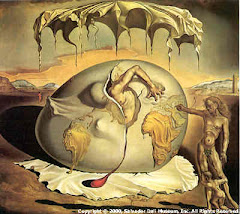But someone might object to my account by saying that I have not sufficiently justified adopting a biocentric axiology instead of a homocentric one. Human rational agency, the objection goes, is really the only thing that has intrinsic moral value in the universe since only rational human agents can be the bearers of moral obligations. While it may to true that there must be something in the universe that has intrinsic moral value, it is better to halt the regress with human rational agency than with life since the former grounds the concepts of duties and rights. While other living beings may have other kinds of intrinsic values, for instance, aesthetic or instrumental ones, they lack intrinsic moral value because they cannot be duty-bearers.
One way of answering this kind of challenge is to ask oneself to consider a philosophical thought experiment in which one is given a forced choice between sacrificing two things of value. Such problem are known a "trolley problems" in the philosophical literature. Usually one put a person on one track and, say, five persons on the other track, and one is instructed that one cannot prevent the trolley from running over and killing either the one or the five. Most people readily choose the lesser evil and save five while sacrificing the one.
But lets alter this example as follows: let's assume that we put the human species on one track, and all other living species on the other. I call this the Cosmic Trolley. Suppose that one is now asked to choose between saving humanity and saving all other living species on Earth. What morally should one choose?
Defenders of the homocentric ethics, like Kant, would have to choose to save humanity, even if that meant sacrificing all other living species, because they believe that only rational human moral agents possess intrinsic moral value, and therefore that the value of other life forms derive from their relationship to our interests. But this could not be a universal law using Kant's categorical imperative since making such a choice would end up in self-contradiction. Choosing to save humanity while sacrificing all other species would be self-defeating because other species of living things can survive perfectly well if there were no human beings at all. But humans cannot possibly survive without other living things. What would we eat once the Tang ran out?
Humans are dependent on the rest of the biological world for own survival, but the converse is not the case. Thus, willing the destruction of all other species of living things in order to preserve humanity would be self-defeating. Therefore, it follows that nonhuman life has a greater moral value that human life. This, of course, does not prove that human life has no intrinsic value, but only that it cannot be the only thing in existence that has such value. The intrinsic value of human beings is entailed by the biocentric view, because we are also alive, but not conversely. The biocentric axiological perspective thus subsumes and encompasses the traditional homocentric axiology that has been the basis of most systems of human morality up until now.
Subscribe to:
Post Comments (Atom)





No comments:
Post a Comment